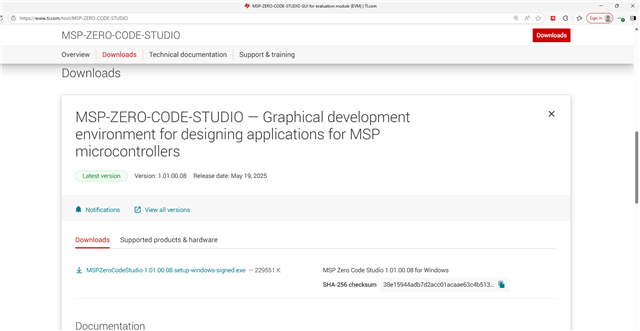Part Number: MSPM0G1107
Tool/software:
Hi Team,
Posting this on behalf of customer who will be tracking this post too.
Our customer from KGS are seeing an issue with the MSPZero Code studio with its saving functionality.
The version number does not show on the application info but customer have the latest version?
I recommended to re-install and also asked him to try the web version for now but have you seen this issue before?
I tried this on my end but I was able to save my progress and load it back.
Can you help?
Regards,
Ivan


